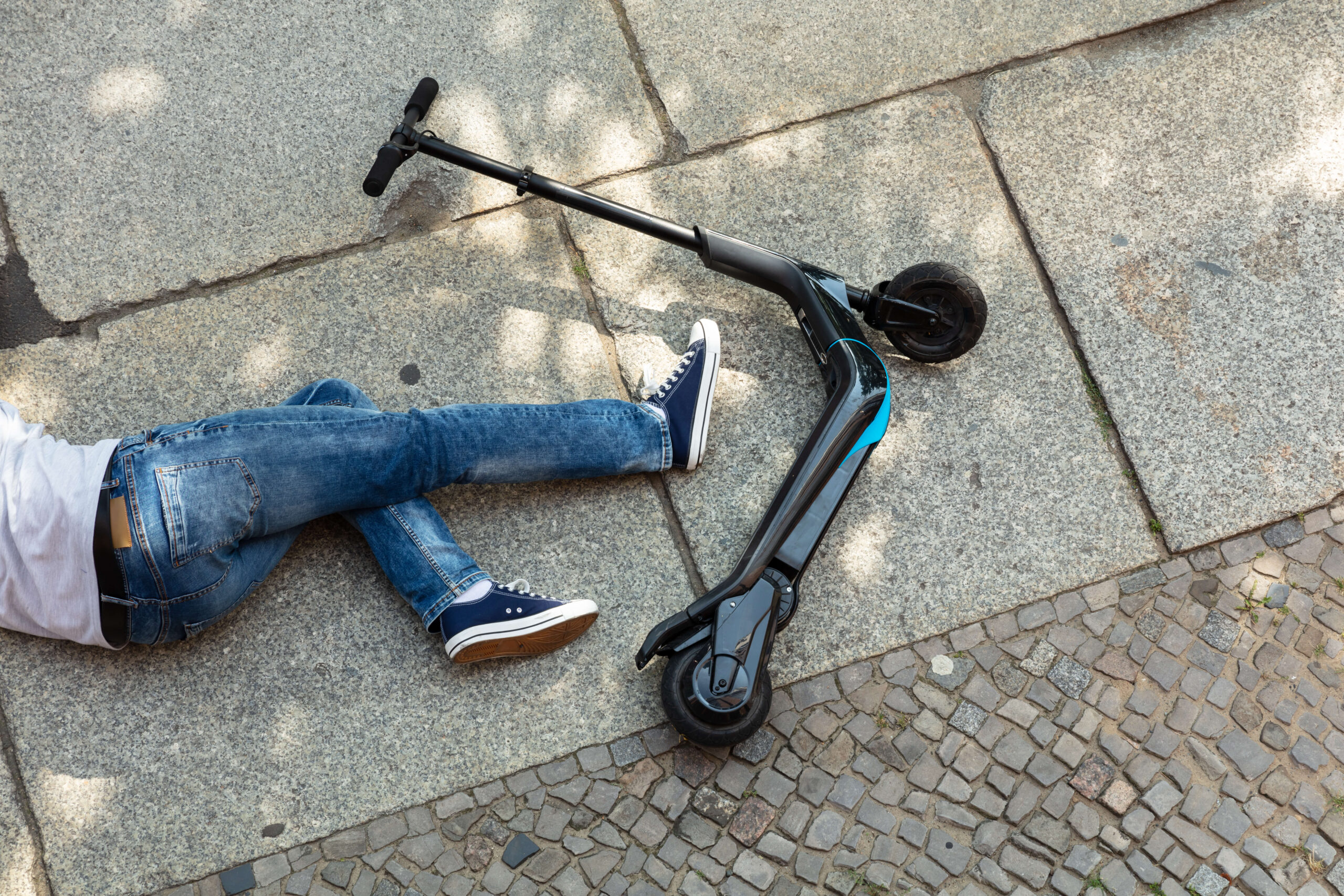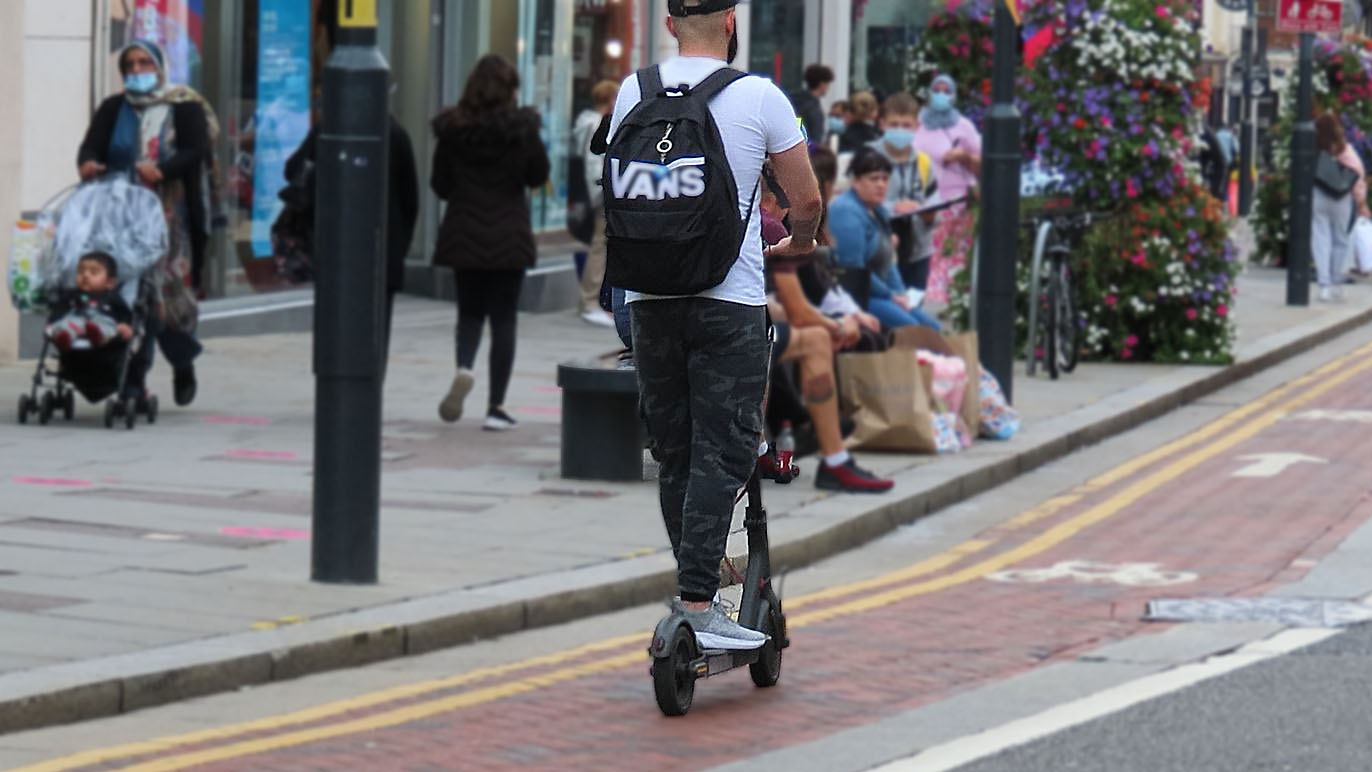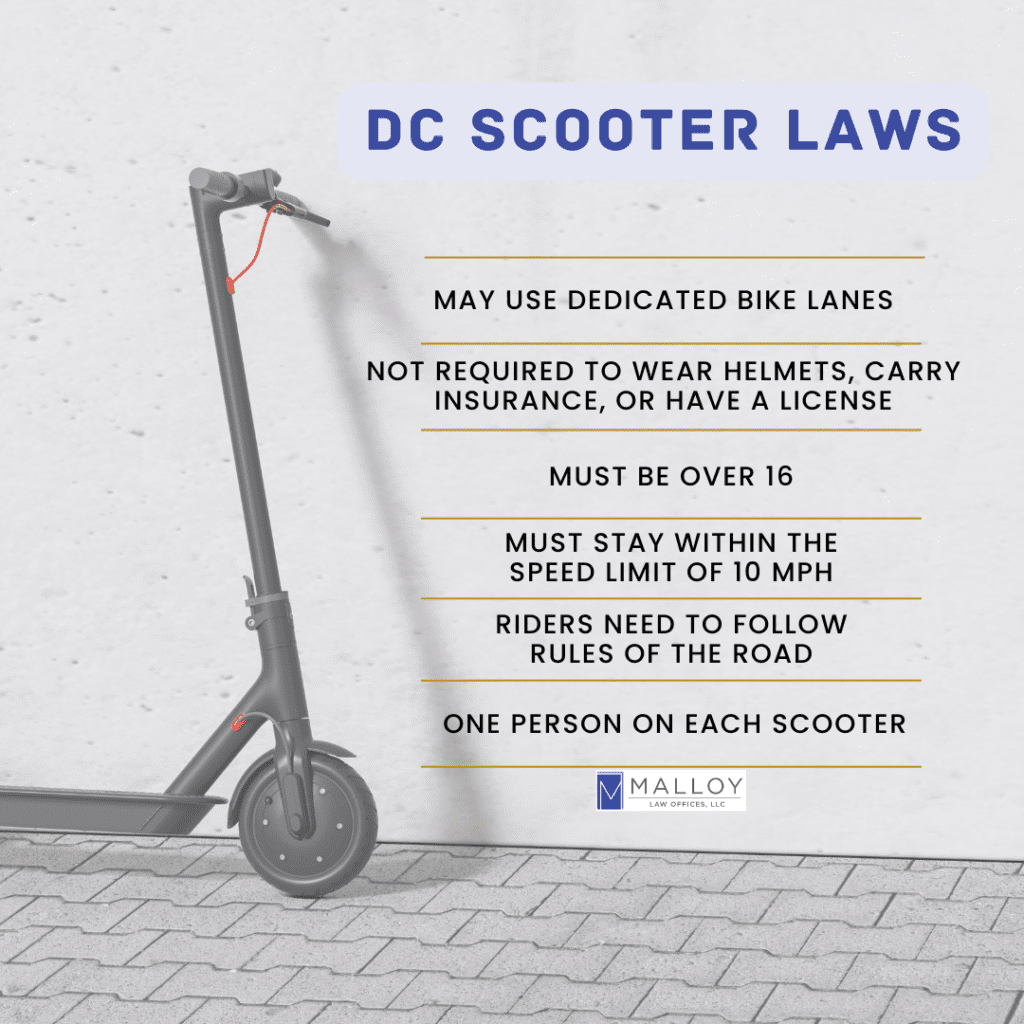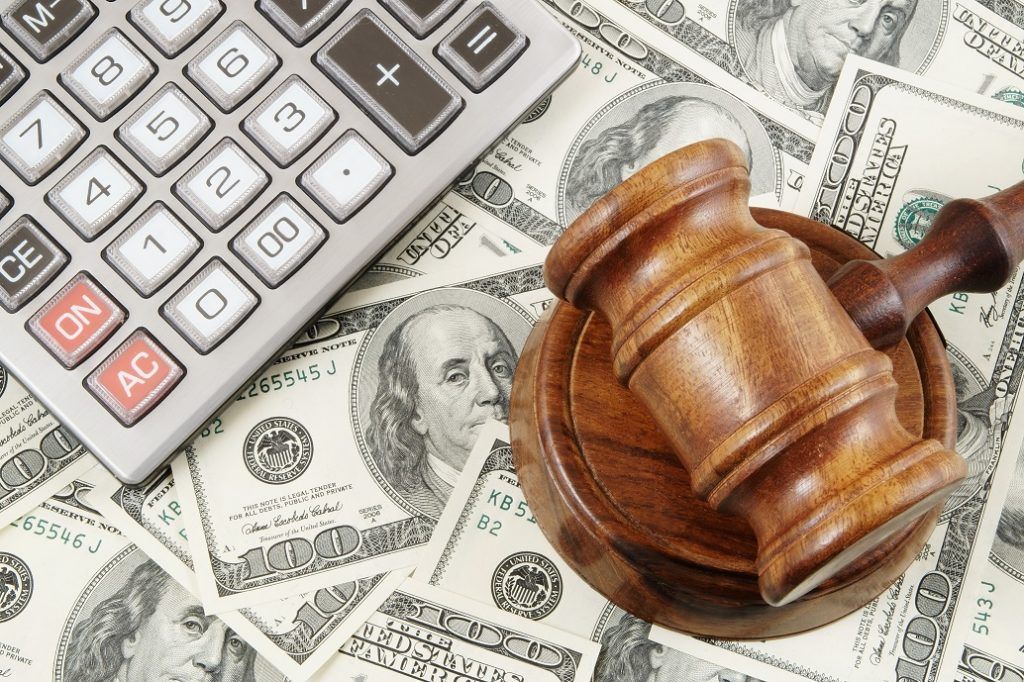Legal Issues of Riding Electric Scooters: A Guide Electric scooters have become increasingly popular as a convenient and eco-friendly mode of transportation, but their rise has also brought about a new set of legal considerations. From navigating varying regulations across jurisdictions to understanding liability in accidents, navigating the legal landscape of electric scooter use is essential for riders and businesses alike.
This guide explores the legal issues surrounding electric scooters, examining topics such as the legality of riding in different regions, age restrictions, licensing requirements, safety regulations, liability in accidents, property damage, theft, and data privacy concerns. It aims to provide a comprehensive overview of the legal landscape, equipping readers with the knowledge necessary to ride responsibly and safely.
Legality and Regulations
The legal landscape for electric scooters is rapidly evolving, with varying regulations across different jurisdictions. Understanding the legal framework is crucial for both riders and manufacturers to ensure safe and compliant operation.
Legal Status
The legal status of electric scooters varies significantly across the globe. In some countries, they are treated as motor vehicles, requiring registration, licensing, and insurance. In others, they are categorized as personal mobility devices, subject to different regulations.
- In the United States, the legal status of electric scooters is largely determined at the state and local level. Some states, like California, have adopted specific regulations, while others have limited or no regulations. In many cities, electric scooters are permitted on sidewalks, bike lanes, and streets with speed limits under 35 mph.
- In Europe, the European Union (EU) has adopted a set of guidelines for electric scooters, which member states are expected to implement. The guidelines recommend a maximum speed of 25 kilometers per hour (15.5 mph) and require riders to be at least 14 years old.
Navigating the legal landscape of riding electric scooters can be tricky, especially with varying regulations across states. For example, in Rhode Island, riders need to be aware of specific rules and regulations, which can impact liability in case of an accident.
Understanding these laws is crucial for both riders and homeowners, as accidents involving scooters can lead to potential claims. If you’re looking for guidance on securing comprehensive home insurance coverage in Rhode Island, check out this resource: Rhode Island Home Insurance Quotes: A Guide for Homeowners.
Having the right insurance can provide peace of mind and financial protection in the event of an unexpected incident involving an electric scooter.
- In Asia, countries like China and Japan have implemented regulations that define electric scooters as vehicles requiring licensing and registration. In other countries, such as Singapore and Thailand, they are treated as personal mobility devices with specific rules for their operation.
Age Restrictions and Licensing Requirements
The minimum age requirement for operating electric scooters varies depending on the jurisdiction.
- In the United States, most states do not have a minimum age requirement for operating electric scooters, but cities often set their own restrictions. For example, the city of Los Angeles requires riders to be at least 16 years old.
- In Europe, the EU guidelines recommend a minimum age of 14 years old. Individual countries may have stricter age limits.
- In Asia, age restrictions vary significantly. In China, for example, riders must be at least 16 years old, while in Japan, the minimum age is 18 years old.
Helmet Laws and Other Safety Regulations
Helmet laws for electric scooter riders also vary by location.
- In the United States, helmet laws are generally determined at the state level. Some states, such as California, require all riders to wear helmets, while others do not have specific helmet laws for electric scooters. Cities may also have their own helmet requirements.
- In Europe, the EU guidelines recommend the use of helmets, but it is not mandatory in all member states. Some countries, such as Germany and France, have mandatory helmet laws for electric scooter riders.
- In Asia, helmet laws for electric scooters are often stricter. In China, for instance, all riders are required to wear helmets.
Legal Consequences of Violating Electric Scooter Regulations
Violating electric scooter regulations can result in a range of legal consequences, including:
- Fines:Violations such as riding without a helmet, exceeding speed limits, or riding on sidewalks where it is prohibited can result in fines.
- License Suspension:In some jurisdictions, repeated violations may lead to license suspension for motor vehicles or other forms of transportation.
- Impoundment:Electric scooters may be impounded if they are operated in violation of regulations.
- Criminal Charges:In cases of reckless or dangerous operation, riders may face criminal charges, including reckless driving or assault.
Liability and Accidents

The rise in popularity of electric scooters has led to an increase in accidents involving these vehicles. This section examines the legal implications of such accidents, exploring the liability of riders, pedestrians, and drivers, as well as insurance coverage and potential legal consequences.
Liability in Accidents
Accidents involving electric scooters often raise complex legal issues regarding liability. Determining fault can be challenging, as the circumstances surrounding each accident are unique.
- Rider Negligence:A rider’s negligence is often a primary factor in accidents. This includes violations of traffic laws, such as riding on sidewalks, exceeding speed limits, or failing to yield right-of-way.
- Pedestrian Negligence:Pedestrians also share a responsibility for their safety. Crossing the street without looking, jaywalking, or failing to yield to scooters can contribute to accidents.
- Driver Negligence:Drivers of cars, trucks, and other vehicles may be liable if their negligence causes an accident with a scooter. Examples include distracted driving, failing to yield, or making unsafe turns.
Legal Responsibilities
In accident scenarios, the legal responsibilities of each party involved depend on the specific circumstances.
The legal landscape surrounding electric scooter use is evolving rapidly, with cities grappling with issues like helmet laws, age restrictions, and designated riding areas. Navigating this complex environment can be challenging, but it’s crucial to understand your legal obligations and protect yourself.
For those seeking comprehensive insurance coverage, Get a USAA Insurance Quote: A Comprehensive Guide offers valuable insights on securing the right protection for your scooter-related risks. By understanding the legal framework and securing appropriate insurance, riders can enjoy the convenience and freedom of electric scooters while minimizing potential liabilities.
- Scooter Riders:Riders have a legal obligation to operate their scooters safely and responsibly. This includes obeying traffic laws, wearing helmets, and maintaining a safe distance from pedestrians and other vehicles.
- Pedestrians:Pedestrians must exercise caution when walking near scooters and avoid sudden movements that could startle riders. They should also be aware of their surroundings and obey traffic signals.
- Vehicle Drivers:Drivers must be aware of the presence of scooters and exercise caution when sharing the road. They should yield right-of-way to scooters in designated bike lanes and be particularly vigilant at intersections and crosswalks.
Insurance Coverage
Insurance coverage for electric scooter riders can vary depending on the specific policy and state regulations.
- Personal Injury Protection (PIP):Some states require PIP coverage for all motor vehicles, which may extend to electric scooter riders involved in accidents.
- Liability Coverage:Liability insurance covers damages caused to others, including personal injury and property damage. However, coverage may be limited or excluded for certain scooter-related accidents.
- Uninsured/Underinsured Motorist Coverage:This coverage protects riders if they are involved in an accident with a driver who is uninsured or underinsured.
Potential Legal Implications
Accidents involving electric scooters can have significant legal implications, potentially resulting in:
- Personal Injury Lawsuits:Injured parties may file lawsuits against riders, pedestrians, or drivers, seeking compensation for medical expenses, lost wages, and pain and suffering.
- Property Damage Claims:Accidents can also result in property damage claims, such as damage to vehicles or other property.
- Criminal Charges:In cases of reckless driving or other serious offenses, riders may face criminal charges, such as reckless endangerment or vehicular manslaughter.
Types of Accidents and Liabilities
The following table Artikels common types of accidents involving electric scooters, their potential causes, and corresponding legal liabilities:
| Accident Type | Potential Causes | Liability |
|---|---|---|
| Collision with a Vehicle | Rider failing to yield, driver distracted, unsafe lane change | Shared liability, depending on negligence of each party |
| Collision with Pedestrian | Rider speeding, pedestrian jaywalking, rider failing to yield | Shared liability, depending on negligence of each party |
| Single-Vehicle Accident | Rider losing control, hitting a pothole, scooter malfunction | Rider liability for negligence, potential manufacturer liability for product defects |
| Fall or Trip | Uneven pavement, slippery surfaces, rider not paying attention | Rider liability for negligence, potential property owner liability for unsafe conditions |
Property Damage and Theft

Electric scooters, while convenient, can pose risks of property damage and theft. Understanding the legal implications and available protective measures is crucial for both riders and scooter owners.
Property Damage Caused by Electric Scooters
Property damage caused by electric scooters can lead to legal liabilities for the rider. Depending on the severity of the damage and local regulations, the rider could face fines, legal action, or even criminal charges.
Navigating the legal landscape of electric scooter riding can be tricky, especially with varying regulations across jurisdictions. While the thrill of zipping through city streets is undeniable, understanding the rules and regulations is crucial. And just like ensuring your boat is properly insured, understanding the nuances of electric scooter insurance is equally important.
For those serving in the military, USAA’s boat insurance options can provide a comprehensive safety net. Ultimately, both boat and electric scooter ownership require a commitment to safety and responsible use, helping to ensure a smooth and enjoyable experience.
- Negligence:If the rider’s actions, such as reckless riding or exceeding speed limits, directly contribute to the property damage, they can be held liable for negligence.
- Liability Insurance:In many jurisdictions, riders are required to have liability insurance to cover damages caused to others. This insurance typically covers legal costs and financial compensation for property damage.
- Civil Lawsuits:The owner of the damaged property can file a civil lawsuit against the rider seeking compensation for repairs or replacement costs.
Protecting Electric Scooters from Theft
Protecting electric scooters from theft involves implementing security measures and reporting theft to authorities promptly.
- Locks and Alarms:Using high-quality locks and alarms can deter potential thieves. Consider using a combination of a U-lock and a cable lock for added security.
- GPS Tracking:Installing a GPS tracking device can help locate a stolen scooter. Some scooters come with built-in GPS tracking, while others require aftermarket installations.
- Registration and Identification:Registering the scooter with local authorities and marking it with a unique identifier can aid in recovery if stolen.
Reporting Stolen Scooters and Recovering Damages, Legal Issues of Riding Electric Scooters
Reporting a stolen scooter promptly is crucial for increasing the chances of recovery. The process for reporting and recovering damages can vary depending on the jurisdiction.
- Police Report:Filing a police report is the first step in reporting a stolen scooter. Provide detailed information about the scooter, including its make, model, serial number, and any identifying features.
- Insurance Claim:If the scooter is insured, file a claim with the insurance company. The insurance company will investigate the theft and may cover the cost of replacing the scooter.
- Legal Action:If the scooter is not recovered or the insurance claim is denied, the owner may pursue legal action against the thief or any other responsible parties.
Flowchart for Reporting Property Damage or Theft
Here is a simplified flowchart illustrating the steps involved in reporting property damage or theft caused by an electric scooter:
Property Damage or Theft
Yes– Was the scooter involved in an accident?
Yes– Did the accident cause property damage?
Yes– Contact the owner of the damaged property and document the incident.
Yes– File a police report.
Yes– Contact your insurance company.
Yes– Seek legal advice if necessary.
No– Was the scooter stolen?
Yes– File a police report.
Yes– Contact your insurance company.
Yes– Seek legal advice if necessary.
Privacy and Data Security

Electric scooters, while offering a convenient mode of transportation, also raise concerns about privacy and data security. These concerns stem from the vast amounts of data collected by scooter companies during usage, including location data, ride history, and user information.
This data, if not properly protected, can be misused or accessed by unauthorized parties, potentially leading to privacy violations and security breaches.
Data Collection Practices
Scooter companies collect various data points during rides, including:
- Location Data:This includes real-time location tracking, starting and ending points of rides, and routes taken. This data can be used to optimize scooter placement, analyze traffic patterns, and provide navigation assistance.
- Ride History:Companies record details about each ride, such as date, time, duration, speed, and distance traveled. This data is used for billing purposes, ride analytics, and identifying potential safety hazards.
- User Information:This includes personal details like name, email address, phone number, and payment information. This data is used for account management, customer support, and marketing purposes.
- Device Information:Companies collect information about the scooter itself, such as battery level, speed, and sensor data. This data is used for maintenance, troubleshooting, and performance monitoring.
Legal Frameworks Governing Data Collection
The legal frameworks governing data collection and usage vary depending on the jurisdiction. However, several key principles apply:
- Data Minimization:Companies should only collect data that is necessary for their stated purposes and avoid collecting excessive or irrelevant information.
- Transparency and Consent:Users should be informed about what data is being collected, how it will be used, and have the opportunity to consent to data collection.
- Data Security:Companies must implement appropriate technical and organizational measures to protect user data from unauthorized access, disclosure, alteration, or destruction.
- Data Retention:Companies should only retain data for as long as necessary to fulfill their stated purposes and comply with legal obligations.
Potential Risks of Data Breaches
Data breaches can have serious consequences for users, including:
- Identity Theft:Stolen personal information, such as name, address, and Social Security number, can be used to open credit accounts, make fraudulent purchases, or assume someone else’s identity.
- Financial Loss:Stolen payment information can be used to make unauthorized purchases or withdraw funds from bank accounts.
- Privacy Violations:Unauthorized access to location data can be used to track users’ movements, monitor their activities, or even target them for harassment or stalking.
- Reputational Damage:Data breaches can damage the reputation of scooter companies and erode public trust in their services.
Protecting User Privacy
Users can take several steps to protect their privacy while using electric scooters:
- Read Privacy Policies:Carefully review the privacy policies of scooter companies before using their services to understand what data is being collected, how it will be used, and what security measures are in place.
- Limit Data Sharing:Users can often limit the amount of data they share with scooter companies by adjusting their privacy settings. For example, they may be able to opt out of location tracking or sharing their ride history.
- Use Strong Passwords:Users should create strong, unique passwords for their scooter accounts and avoid using the same password for multiple online services.
- Enable Two-Factor Authentication:This adds an extra layer of security by requiring users to enter a code sent to their phone or email in addition to their password when logging in.
- Be Aware of Data Breaches:Stay informed about any reported data breaches involving scooter companies and take appropriate steps to protect your information if your account is compromised.
Data Collection Practices of Different Scooter Companies
| Company | Data Collection Practices | Privacy Policy |
|---|---|---|
| Lime | Collects location data, ride history, user information, and device information. | Provides detailed information about data collection, usage, and security measures. |
| Bird | Collects location data, ride history, user information, and device information. | Provides information about data collection, usage, and security measures. |
| Tier | Collects location data, ride history, user information, and device information. | Provides information about data collection, usage, and security measures. |
| Bolt | Collects location data, ride history, user information, and device information. | Provides information about data collection, usage, and security measures. |
Ultimate Conclusion: Legal Issues Of Riding Electric Scooters
As electric scooters continue to gain traction, understanding the legal issues surrounding their use is crucial. From navigating varying regulations to being aware of potential liability, riders must be informed to ensure safe and responsible operation. This guide provides a framework for navigating the legal complexities of electric scooters, encouraging a culture of safety and compliance.



